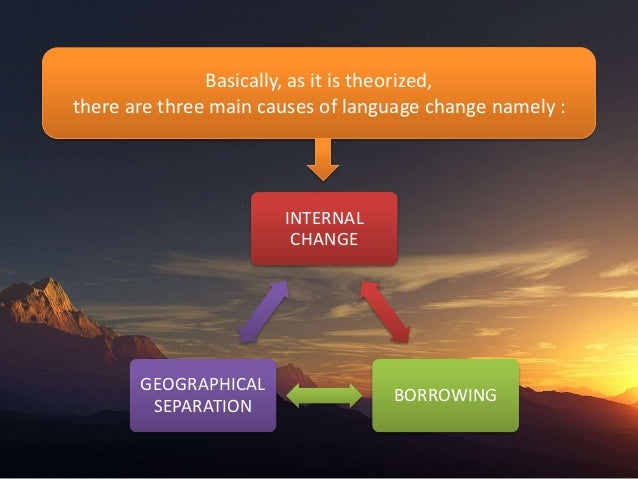- in simplest terms it is when one variation replaces others as the standard or high prestige variant within a society.
- e.g. Hwaet! = Hi
- Change can be Internal or External, conscious or unconscious.

- Can be divided in two: Top-down or bottom-up change.
- Top-down (unconscious change) occurs when a memeber of the upper class (usually a new member) creates a new linguistic form.
- This linguistic form is taken up by other upper class members and then middle class members who seek to emulate the speaker.
The middle class takes up the new form as means of appearing to be an upper class speaker. what is the mechanism? prestige
The same mechanism results in the working class taking up the same form. this machanism works quickly and language may change in the space of a few years.
 Botton-up change occurs when working class language filters to the upper class either through saturation of a form or through the middle class identifying with the covert prestige of the form.
Botton-up change occurs when working class language filters to the upper class either through saturation of a form or through the middle class identifying with the covert prestige of the form.
The upper class eventually takes up the forms as the prestige of the form changes and they accede to middle class language.
- Pidgins and creoles are the result of contact with several cultures, specifically where there is a lack of a lingua franca among at leats 3 groups.
- A pidgin is a lingua franca created to provide basic communication means among at least three groups
- It dreams most of its vocabulary and structure from the dominant language - The lexifier (the language which gives the words) and some words from the other languages.
- Creoles are formed when pidgins get L1 speakers
- The L1 speakers add complexity to the language and start to lexify not from the dominant language but from languages B+C
- Pidgin grammatically simple
- Creole grammatically complex










No hay comentarios:
Publicar un comentario